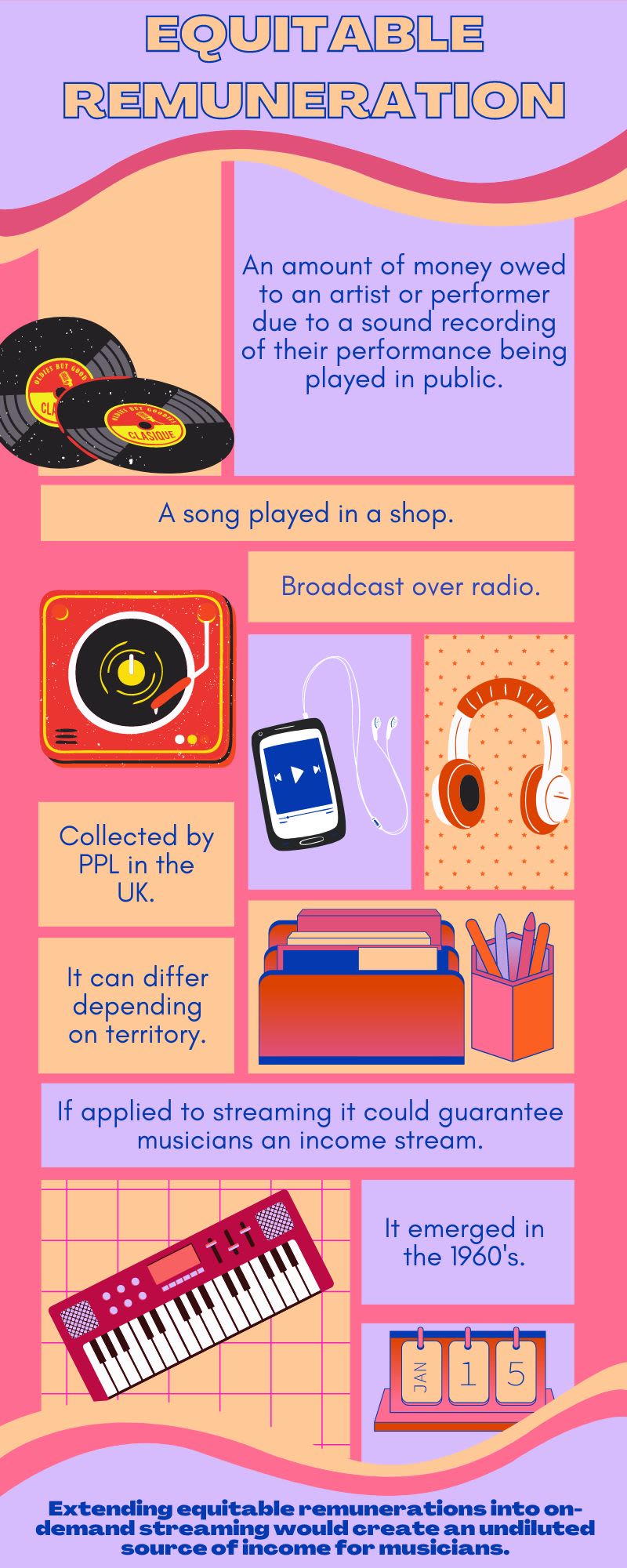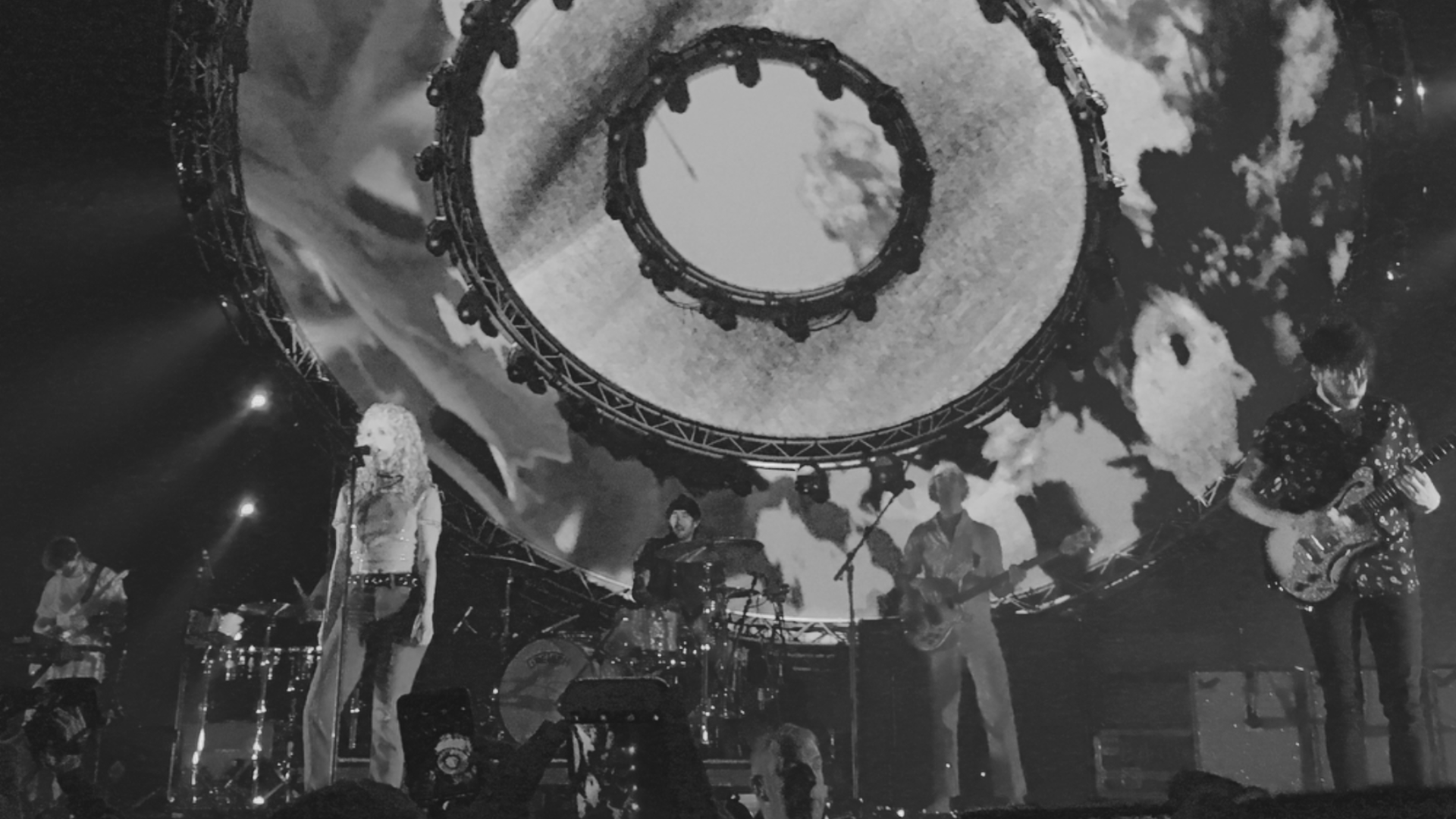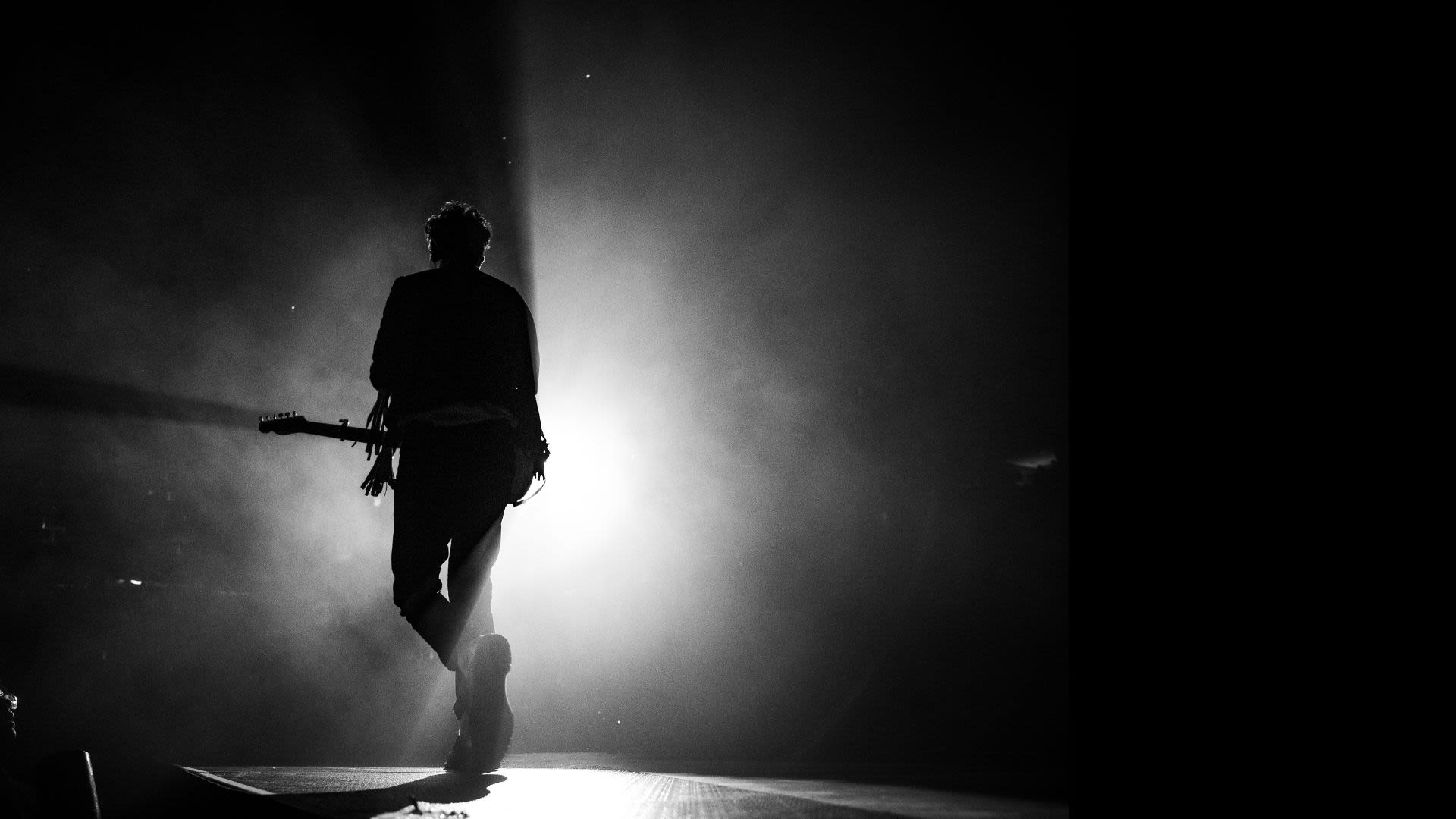Music Streaming: The Write Share
A look inside the music streaming industry as songwriters continue to appeal for a fairer slice of royalty pie.

Sat backstage at Green Man Festival interviewing the political post-punks M(h)aol fresh off the Rising stage, vocalist Róisín Nic Ghearailt chirps “feminism pays – but not in money” It’s self-deprecatory yet worldly. “In exposure,” guitarist Sean Nolan follows, rattling the statement off almost as if scripted. Dipping in and out of the music industry you frequently hear this statement thrown around, exposure, a dirty word amongst those who pine for it the most. The retaliation is fathomable, aren’t musicians worth more than a pint and a “nice one!”? Anyone who says otherwise would have to be viewing the industry through rose-tinted glasses. See, the music industry is glamorised. It’s the road to social mobility for the working class, to wealth and success and a Mercedes-Benz Slr Mclaren – except it’s not.
Change of record
Streaming continues to be the dominant form of music consumption today. Mechanical royalties are payments made to a writer when a song is reproduced. A tale as old of time however, this exchange sees streaming sites paying the owners of the sound recording of a song, often the record label’s property and not the writer, something that’s been adopted from 1960’s record sales where common deductions included packaging also known as container charges. Even today packaging deductions can be found on downloads.
Referring to mechanical royalties, streaming isn’t reproduction, by any means. “It has similarities with radio,” mentions Welsh Labour MP and All-Party Parliamentary Group Music Group Chair Kevin Brennan. “You’re entitled to payment if your music is played on radio, called equitable remuneration... Streaming is gradually, and it’s a stated aim, replacing a lot of music played on radio.” Streaming is like radio because it plays out an algorithm rather than necessarily what you’ve selected yourself meaning, you never own a recording of your favourite song and sometimes you're not the one deciding on what's next.
It’s a profession like any other. “That isn't the business” Tom Gray, Broken Record campaigner and The Ivors Academy chair states when describing the glitz and glamor. “That's not the actual industry of songwriting and it's not even the industry of being a recording artist. It's just mythology.” Songwriters know this best; they are the secret ingredient major labels need – a source of inspiration and musical direction plonked into a writing session with zero cash in hand incentive. The songwriters of today, in comparison to past generations, are producers, engineers, PR executives and teachers. Musicians being one, if not the, biggest industry, most likely to uphold a second job to make ends meet, songwriters also likely to be delivery drivers, hairdressers and baristas.

Speaking to Tom Gray, it’s clear just how archaic copyright law is. According to the campaigner, it’s never addressed what it really is. “With regards to songwriters, the crazy thing is that streaming has been divided up based on the premise that it's just like a record sale. Fundamentally, it’s not a broadcast, and it's not a record sale. Streaming is streaming.” It hasn’t changed since 1996’s Making Available Right, reflecting physical products like records and CDs being turned into monetised air also known as digital music. The people lobbying the hardest for this copyright change the most, being the major three record labels Universal, Warner and Sony, who owned the rights to this music. The piracy minds of the controversial Napster, started in 1999 by two teenagers, became major label’s biggest competitors for a time, what would follow was the music industry’s downfall into the tech revolution.
As of now there is no official method to copyright your work within the UK, the 1988 Copyright, Designs and Patents Act only protecting permanent composition formats and an original sound recording. Pushing for change is singer-songwriter and She Writes (all female songwriting camp) co-founder Violet Skies. “You'd have to go and change the law in congress in the US, in order for it to reflect changes in worldwide royalty rates” she starts off, reflecting the scale of the matter.

In 2019 a 44% streaming royalty rise, decided by the Copyright Royalty Board (CRB), saw songwriters’ fees look to rise over the following five years. Songwriters continue to appeal however, streaming services battle on, in what the National Music Publishers’ Association (NMPA) equated “suing songwriters.” “I would just rather they pay us a royalty rate and stop fighting us in court” Skies continues, speaking as one of many frustrated songwriters simply requesting the pie to be divided up differently.
Pioneering electronic artist Four Tet is one of the most recent examples of artists entering a royalty battle. The 2022 Glastonbury performer also known as Kieran Hebden sued label Domino Records over his mechanical royalty share after receiving a 13.5% cut but demanded 50%.
According to a recent report, Kieran was able to make his claim because he took his case to an IPEC (Intellectual Property Enterprise) court, a business and property court within England and Wales which hears cases concerning intellectual property. Legal costs were capped. A different instance would likely discourage an artist from continuing.
In May Variety mentioned a legal deadlock for the upcoming years 2023 to 2027 with rights-holders and trade groups aiming for the 15-cent songwriter fee mark, up from the current 9.1 cents set in 2008, the same year Spotify was launched. Tom Gray insists the major labels and streaming platforms aren’t the bad guys. “Those companies have to serve their shareholders. They're on that rail legally, they can't decide to do something else. You've got to bring in an external force to change that.”
Last year Kevin Brennan introduced the Copyright (Rights and Remuneration of Musicians, Etc) Bill, however it failed to receive parliamentary backing. One of the bill’s main provisions to change copyright law. Brennan’s bill would mean a musician was guaranteed payment through streaming. Due to the the industry’s infrastructure I asked Kevin Brennan whether it would be too complex to start fresh regarding a proposal, in comparison to tweaking the existing (unfavoured) one. “If someone came forward with a really good proposal that would redefine what streaming is in law, and enable better rewards for musicians and songwriters, I'd be all for it” Kevin Brennan reminds me. Ripping up everything a nd starting over can be extremely complicated, time-consuming and expensive.
CEO of British Labels Body, BPI (British Phonographic Industry), Geoff Taylor commented on the bill saying it would harm musicians in future if it were to pass. “This Bill would bind British music in red tape, reduce income for the most entrepreneurial artists, stifle investment and innovation by record labels, and disproportionately harm the independent sector. It would create huge uncertainty and deny many of the next generation of artists their shot to build a career. It completely misunderstands today’s music business, and the value that labels provide in finding and nurturing talent.” A BPI spokesperson commented in November 2021 with both independent and major UK record labels in mind. “The bill didn’t receive the backing of parliament to progress, which speaks for itself.” Gennaro Castaldo, director of communications at BPI told me.

Most are aware that change needs to happen for a fairer ecosystem, what people are unaware of however, is where this change might come from with the matter in deadlock. Skies has posted on her social media the importance of paying songwriters commission on streaming. In the instance of owning your own material, she appeals to indie artists to create their own spreadsheets to readjust their outgoings, adding up the smallest additional percentages, because even the smallest difference makes songwriter’s time and efforts that little bit more sustainable and worthwhile. This puts the resources in the artist’s laps directly because why wait around for the big guns?
Whether it’s as mentioned above, something each individual needs to factor into their paperwork, or whether a required government intervention needs to happen, there's no previous precedent to look to for suitable guidance on the matter that will enforce a fairer system.
There’s a “misapplication of value within (the) market and that has been (created) by people who own rights, deciding which rights make them the most profit, not based on what sorts of natural justice value would lead you to” Tom Gray sums up.
Going forward, unionisation seems too disconnected as songwriters aren't considered labourers. They're completely independent, and without a shared workplace or larger organisation to represent them. On the upside, The Musicians' Union provides copyright advice and song share agreement templates so you, yourself, can credit the songwriters you've worked with.
Over the next five years US songwriters will see an increase in royalty rate pay from streaming services. This is thanks to an increase from 15.1% to 15.35%. Although the deal put to the Copyright Royalty Board is only set to go ahead in the states, it might still motivate those not yet at 15% elsewhere in the world to increase but only time will tell.